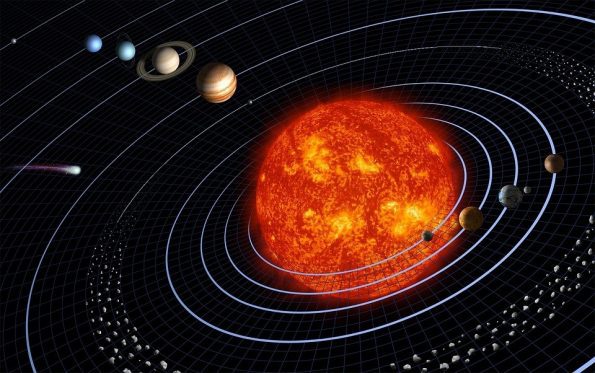
Pluto is a beloved celestial body that has been surrounded by controversy years after its discovery; so many people had issues about Pluto, some were supporting that Pluto was a planet while some were against it. Much debate was conducted to resolve the issue of whether Pluto is really a planet or not. A decision was made that garnered a lot of support and hate; which involved a lot of attention all around the world, even developing countries were baffled because like the Philippines, the solar system is a big part of their educational curriculum, so if the whole solar system club was to be changed it would cause slight changes in the science educational system; even politics were involved, state senates in the US passed a resolution against the decision.
If you’re really wondering what really happened to Pluto, here’s something to help you:

History
Pluto was discovered by Clyde Tombaugh in the year 1930; he found an object that was in circular orbit around the sun, and like that, a 9th planet was found. The discovery caused quite a ruckus around the world; hearing of this, an 11-year-old schoolgirl named Venetia Burney thought of the name “Pluto” named after the Roman god of the underworld after noticing that the other planets were named after Roman gods. Her grandfather, an Oxford librarian, passed the idea for a name to the Lowell observatory (where Tombaugh was working in) and the Lowell staff unanimously voted for the name and on May 1, 1930, the nameless 9th planet was now called Pluto.
Not long after its discovery, astronomers noticed something that made Pluto standout from the rest of the planets; its orbit was not as circular as had been accepted, it was actually more elliptical than circular and it meant that it spent most of its years closer to Neptune rather than the sun. And after telescopes progressed, astronomers noticed that Pluto was in fact, a lot smaller than the earth as opposed to the notion that it was nearly as big as the earth.

Discovery of the Kuiper Belt
Along with the progress of telescopes, more discoveries were found. One such discovery was the Kuiper belt, it was a ring around Neptune that consisted of rocky and icy materials; this caused scientists to speculate that Pluto was just the largest member of this belt, rather than being a stand-alone planet.
In 2005, a scientist named Mike Brown discovered a celestial body on the far side of Neptune; the celestial body was named Eris (from the Greek goddess of strife – fitting name because of all the chaos it would cause). Since its discovery, Eris was found to be even larger than Pluto; so, this begged the question that whether or not Eris was to be made a planet or not.
The International Astronomical Union
With the controversy that came up with the discovery of Eris, it was up to the IAU to decide whether or not they should keep Pluto as a planet or to name Eris the 10th planet in our solar system. The decision they came up with was to classify Pluto and Eris as something other than a planet.
The IAU came up with a definition for something to be called a planet: a body that goes around the sun, and it should be big enough to take on a spherical shape and “clear the neighborhood around its orbit” of all other objects. Clearly, with Pluto being a part of the Kuiper Belt, it definitely failed to conform with the last definition of a planet. Therefore, Pluto and Eris were classified to a new type of celestial body, called “dwarf planets”.
Controversy
Along with the IAU’s decision, complaints arose from different people. One such person that voiced a complaint is NASA astronomer, Alan Stern; he said that the new definition of a planet is too vague and inaccurate because the traditional planets have asteroid-like bodies orbiting near them, making them unable to conform to one of the definitions of a planet. However, Mike Brown, the one who discovered Eris, said that the IAU made the right choice because if they did not define what a planet is, “There will be hundreds of dwarf planets” he stated.
But people should not be sad that Pluto is not a part of a bigger class, instead, they should be happy that it is one of the firsts in a category of its own. Scientists have always looked for other planets and we’ll never know, they might discover a body that fits the IAU’s definition of a planet; so, let’s stay hopeful and believe in the capabilities of our scientists because they go to where no man has gone before!


Leave a Reply